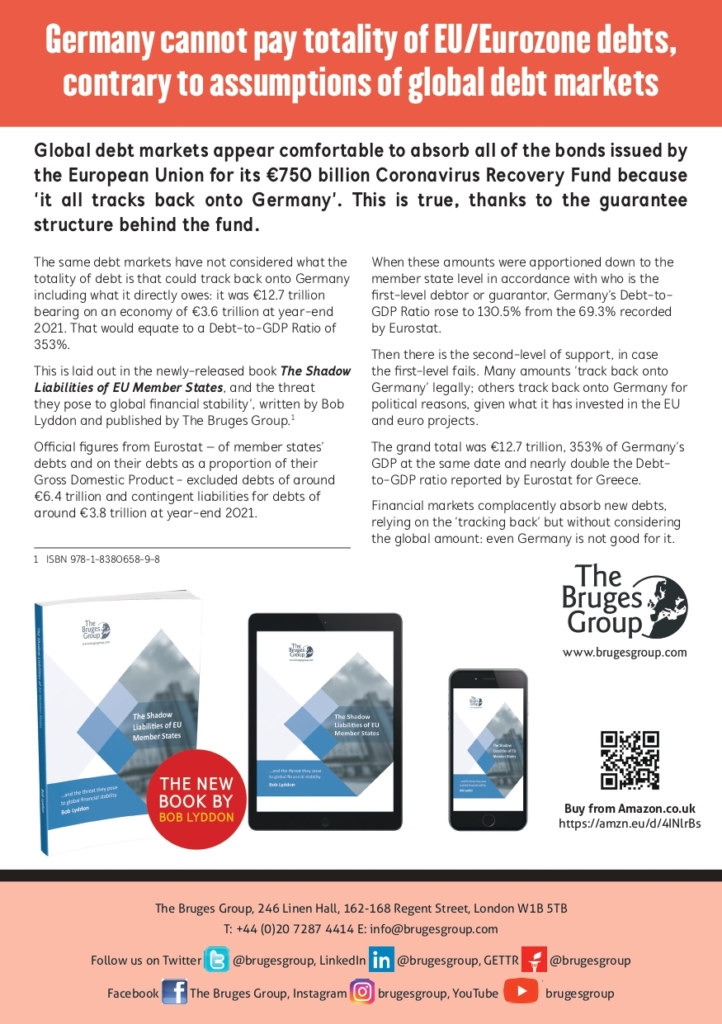Published on 15th April 2023
Global debt markets appear comfortable to absorb all of the bonds issued by the European Union for its €750 billion Coronavirus Recovery Fund on the basis that ‘it all tracks back onto Germany’. This is true: the guarantee structure behind the EU’s debts makes each member state liable for the entirety of them. The same debt markets do not seem to have considered what the totality of debt is that could track back onto Germany including what it directly owes: it is €12.7 trillion bearing on an economy of €3.6 trillion. That would equate to a Debt-to-GDP Ratio of 353%.
This is laid out in the newly-released book ‘The shadow liabilities of EU Member States, and the threat they pose to global financial stability’, written by Bob Lyddon and published by The Bruges Group.[1]
Eurostat put the Debt-to-GDP Ratio of the EU as a whole at 90% at the end of 2021, but the numerator in this calculation – ‘General government gross debt’ – does not include the shadow debts (like those of the EU and those of central banks within the TARGET2 payment system) or contingent liabilities (like underwriting debts and risks in EU-level supranationals like the European Central Bank and the European Stability Mechanism). The excluded amounts were around €6.4 trillion and €3.8 trillion respectively.
These amounts are apportioned in the book down to the member state level in accordance with legal liability, shareholding proportions and the member state’s normal share of the EU budget. On that basis the Debt-to-GDP Ratio of Germany was above the UK’s, going from 69.3% to 102.8% when the shadow debts were added in, and up to 130.5% when the contingent liabilities were factored in as well.
The problem for Germany is that it has the biggest shareholdings and budget contributions, and is the cornerstone of the EU/euro project. The phrase ‘it all tracks back onto Germany’ is true legally in the case of a portion of the debts (like those behind the Coronavirus Recovery Fund) and politically behind all of them: if the European Central Bank made major losses on its programmes that exceeded its capital and reserves, there would be a call on the member states through their central banks to subscribe to new shares. In theory the Bundesbank could refuse its allotment, and sit back while other central banks did the same. But then that would be the end of the European Central Bank and the euro project, and probably the EU.
‘It all tracks back onto Germany’ is a phrase based on legal and political reality but reflecting a high degree of complacency: financial markets view Germany as being good for its own debts, the shadow debts and the contingent liabilities. The grand total is €12.7 trillion, 353% of Germany’s GDP at the same date and nearly double the Debt-to-GDP ratio reported by Eurostat for the Hellenic Republic of Greece.
Is Germany good for all that? No, of course not.
[1] ISBN 978-1-8380658-9-8

